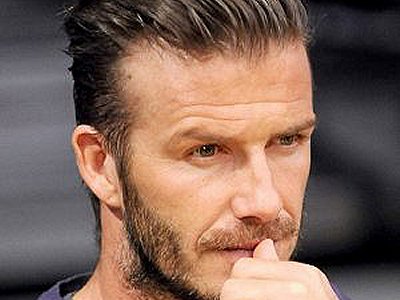
LOOKING UP TO OTHERS
Famous people have the most diffused power to influence others, but more concentrated power lies closer to home.
Role models have always featured in culture but never more so than now. The cult of the individual, allied to the staggering loss of trust in public bodies (in Britain alone, it has been a bad few years for the BBC, NHS, Parliament, the media and the Church) means we have invested more in the power of personal role models. There are also more people to choose from. Before mass media, we had relatively few people to look up to and these were mainly drawn from family and the neighbourhood community. With the growth of digital media, we have countless numbers of people to admire and emulate. In this way we might distinguish between those we know and mediated role models.
If social mobility means we simply know more people than before, the explosion of media leads us to think we also know the people we read about and see on our TV screens and online. This can have very real effects: people often instinctively say hello to celebrities when they cross them in the street, even though they have never met before. There are also inherent risks: we are more prone to idolise mediated role models precisely because we do not know them personally.
With today’s preference for image over character, it is easier for well-known people to airbrush their appearance through effective public relations in order to seem nicer than they are. .Though some famous people are targets for endless sniping in the media, a surprising number receive uncritical acclaim and it is only when one incident comes to light that a different story begins to unfold. The most egregious example of this is Jimmy Savile, where the failure to shed light on his character because of his fame led to further abuses which could have been prevented If his is an extreme case, the fall from grace of other people can be a shattering experience for those who look up to them. There is, however, an opportunity for growth in maturity when our illusions are broken, for no-one should be idolised. The Bible is always careful not to place human beings on an irreproachable pedestal, exposing their failings as much, if not more, than their successes. This is a necessary exercise in iconoclasm if we are to worship God without hindrance. Nevertheless, St. Paul was bold to tell believers that they should imitate him as he imitated God. He knew the power of personal example; that a life lived passionately for God was worth a thousand sermons in the eyes of others.
It is often said today that we should not expect famous people like rock stars, footballers, models and movie stars to be role models. If by this we mean they cannot live up to the unrealistic expectations others place on them, the argument is sound. If, however, we are exempting them from the need to set any kind of example - because we expect rock stars to trash hotel rooms, footballers to violate women and models to shoot up - then our culture is diminished. If we expect other professionals to set an example, like teachers and doctors, why should any be excluded from the need to show younger people, in particular, a life to emulate?
This is where the debate over role models becomes most uncomfortable because it presupposes we all have a part to play. It may be that mediated role models have the most diffused power to influence, but the more concentrated power lies with us as relatives, friends, employees, volunteers and so on, for those we know see us day after day. We should know they are watching us because we are watching them. St. Paul saw the power of imitation and he encourages us to embrace this truth: I am the most important role model in my world. Less time looking up and more time looking in the mirror might be the source of this inspiration.
POPULAR ARTICLES

Obama's Covert Wars
The use of drones is going to change warfare out of all recognition in the next decades.

Through A Glass Starkly
Images of traumatic incidents caught on mobile phone can be put to remarkable effect.

What Are British Values?
Is there a British identity and if so, what has shaped the values and institutions that form it?


